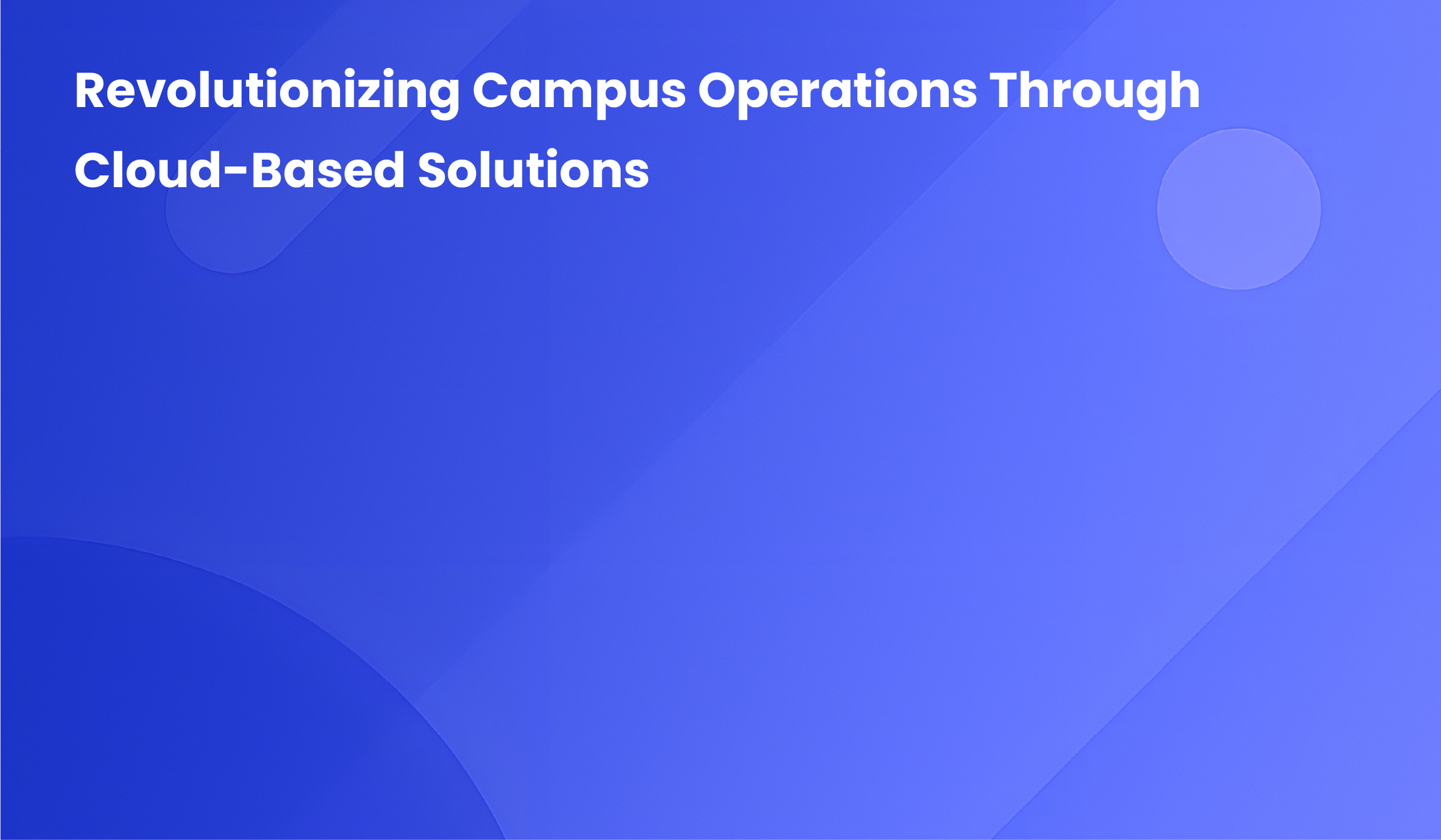Top five ways colleges can mitigate risks and protect sensitive student data

The number of colleges using education software is increasing every year and is not about to slow down. The database of educational institutions is vulnerable to cybercrime and other attacks. Colleges, universities and higher education institutions are holding all kinds of data – be it student, faculty, academic, financial and other administrative process related. In the digital age, cloud-based student information system is the new source of value for institutions. Monitoring and reporting for the prevention of attacks are becoming more important for institutions in order to protect the growing amount of valuable student data.
Keep all your data secure in the cloud
Today, sending photos by email or using USB flash drives to carry files and documents are no longer secure. College administrators are facing tough challenges in the higher education industry and want a paradigm shift from offsite to an agile and cost-efficient cloud platform. And it’s happening with educators expressing forward-looking statements. The cloud has become the trusted hub to access, exchange and store data permanently. Now even documents from students, grade book, transcripts, ID scans, fee collections and confidential project work are stored in the cloud. Data privacy is ensured in a cloud environment.
How to implement data security and protect sensitive college database
There are five ways to mitigate risks and protect sensitive data in the cloud:
1. Stop sensitive student data breaches with role-based security
Any sensitive data stored should always be considered in danger of greater risk due to insecurities in outdated legacy technologies. Many institutions rely on IT infrastructure in their legacy systems to protect sensitive data. Managing data risk by implementing cloud security with role-based authentication and authorization ensures that only approved users are granted access to appropriate systems and resources. Manage constituents in the campus community including students, faculty, staff and administrators with role-based privileges to ensure data integrity, confidentiality and availability of data and information. Role-based identity and access controls, key management, encryption, and firewalls can ensure data protection in the cloud is cost-effective and can mitigate the risks of data breaches effectively.
2. Data backup controls to minimize risks
Merely replicating sensitive data is not simply enough to keep the institution secure. There are a different sets of risks that are overlooked. Ensure security policies with backup systems including plans for disaster recovery and incident responses. Automatically store data backup offsite or in a different location to ensure that your data backup is secure.
3. Monitor & audit to ensure compliance
Many institutions don’t have solutions to monitor their IT infrastructure to assess database vulnerabilities. Monitoring and auditing of compliance policy of IT systems including privilege rights to roles and identities relating to the use of applications and data to ensure enforcement of proper security controls in the institution. Strengthen database security monitoring with automated reporting and real-time analytics to demonstrate compliance to regulations and standards.
4. Handle IT security incidents effectively with automatic notifications
It is important security incidents have a proper response system to address sensitive data breaches and notify relevant users with automatic email notifications. Security breaches to sensitive data of students including demographic information, academic and health records, and financial information should be detected in a timely manner and corrective actions against the vulnerabilities are executed.
5. Protect data from cyber security threats
It is important for educational institutions to evaluate information security threats and take proactive measures to detect and block attacks through spam, viruses, phishing, and other advanced malware attacks. Traditional anti-malware solutions can’t stop cyber-attacks and targeted threats. Cloud-based security intelligence offers advanced protection against new forms of malware and malicious email links.
To learn more about data security and risk mitigation, please contact us for a free consultation.



